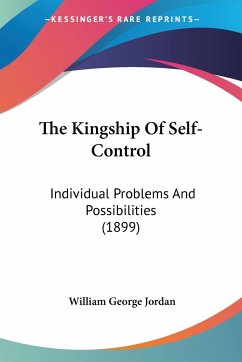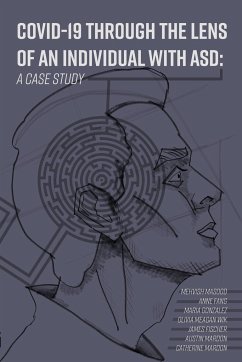
The Kingship Of Self-Control
Individual Problems And Possibilities (1899)
Versandkostenfrei!
Versandfertig in 1-2 Wochen
19,99 €
inkl. MwSt.

PAYBACK Punkte
10 °P sammeln!
The Kingship of Self-Control: Individual Problems and Possibilities is a book written by William George Jordan and first published in 1899. The book explores the concept of self-control as a means of achieving personal success and happiness. Jordan argues that self-control is the foundation of all achievement and that without it, individuals are unable to reach their full potential. Throughout the book, Jordan provides practical advice on how to develop self-control and overcome common obstacles such as procrastination, fear, and impulsiveness. He emphasizes the importance of discipline and pe...
The Kingship of Self-Control: Individual Problems and Possibilities is a book written by William George Jordan and first published in 1899. The book explores the concept of self-control as a means of achieving personal success and happiness. Jordan argues that self-control is the foundation of all achievement and that without it, individuals are unable to reach their full potential. Throughout the book, Jordan provides practical advice on how to develop self-control and overcome common obstacles such as procrastination, fear, and impulsiveness. He emphasizes the importance of discipline and perseverance in achieving one's goals and encourages readers to take responsibility for their own lives. Jordan also discusses the role of self-control in relationships, arguing that it is essential for healthy communication and mutual respect. He explores the challenges of maintaining self-control in the face of external pressures and offers strategies for staying focused and motivated. The Kingship of Self-Control is a timeless classic that continues to inspire readers to take control of their lives and achieve their dreams. It is a must-read for anyone seeking to develop their self-discipline and improve their personal and professional relationships.This scarce antiquarian book is a facsimile reprint of the old original and may contain some imperfections such as library marks and notations. Because we believe this work is culturally important, we have made it available as part of our commitment for protecting, preserving, and promoting the world's literature in affordable, high quality, modern editions, that are true to their original work.












